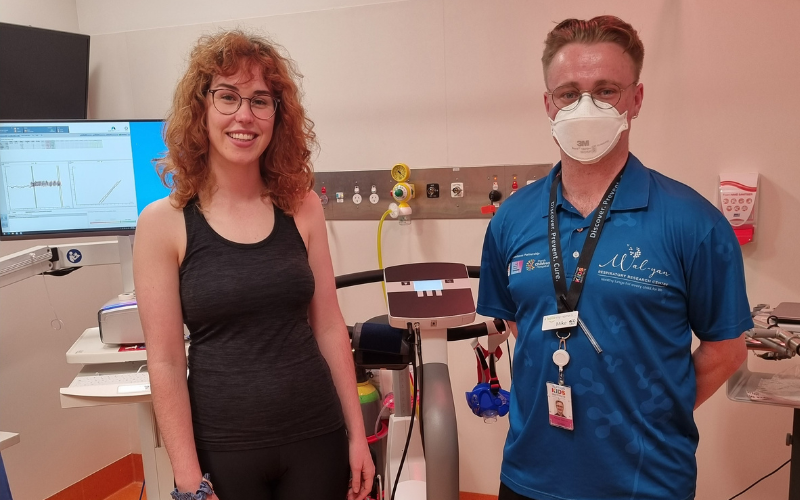Search
Showing results for "lung disease preterm"
Graham Ingrid Shannon Hall Laing Simpson BAppSci PhD CRFS FANZSRS FThorSoc FERS BSc PhD BMedSci (hons), PhD Honorary Research Associate Head,
It is essential to embed patient and public perspectives into every stage of the research journey, including setting the future research agenda. The substantial gaps in our understanding of prematurity-associated lung disease presented a timely opportunity to determine the community's research priorities.
Understanding if ongoing inflammation in the lungs contributes to the poor lung health experienced by some children who were born preterm.
Children born preterm have impaired lung function and altered lung structure. However, there are conflicting reports on how preterm birth impacts aerobic exercise capacity in childhood. We aimed to investigate how neonatal history and a diagnosis of bronchopulmonary dysplasia (BPD) impact the relationship between function and structure of the lung, and aerobic capacity in school-aged children born very preterm.
Small airway and lung parenchymal abnormalities frequently occur following preterm birth but are commonly missed by spirometry. Static lung volumes, diffusing capacity of the lung for carbon monoxide (D LCO) and oscillometry provide a more precise characterisation of these conditions. We hypothesised that differences in these measures exist between individuals born preterm and at term and we aimed to systematically review the literature to identify and quantify these differences in lung function.
To obtain comprehensive data on lung structure and function in mid-childhood from survivors of preterm birth.
Lung function trajectories are impaired in survivors of very preterm birth
We’ve heard from families that trustworthy information about preterm-associated lung disease is difficult to find. In response, we’ve created resources to empower families with the knowledge they need to manage these challenges.
To assess whether lung volume and ventilation inhomogeneity in preterm infants at 15-18 months corrected age

Natasha, who is a participant in the West Australian Lung Health in Prematurity (WALHIP) study, this week became the first person to receive a lung health assessment using new state-of-the-art lung function testing equipment at Perth Children’s Hospital.
